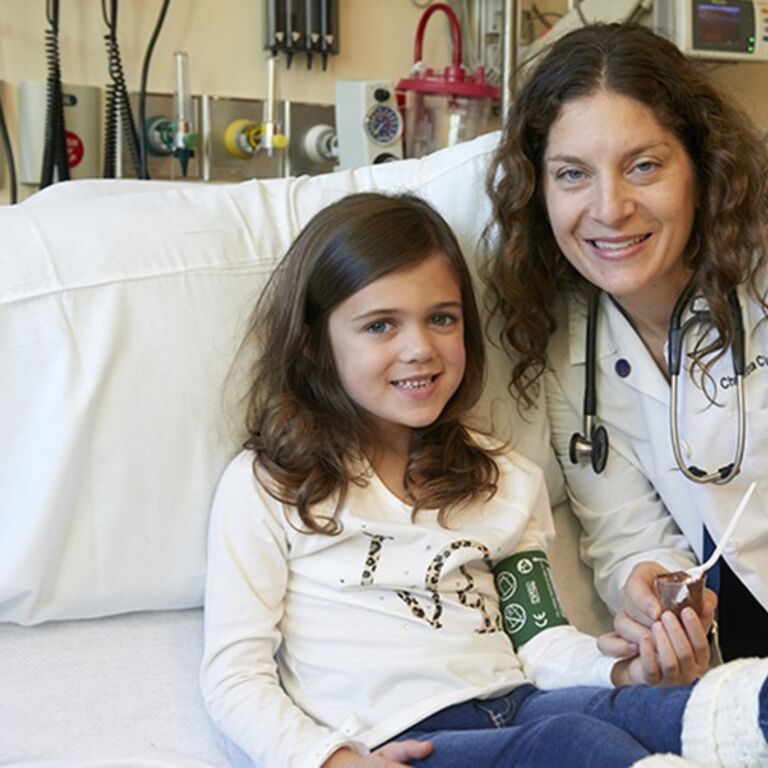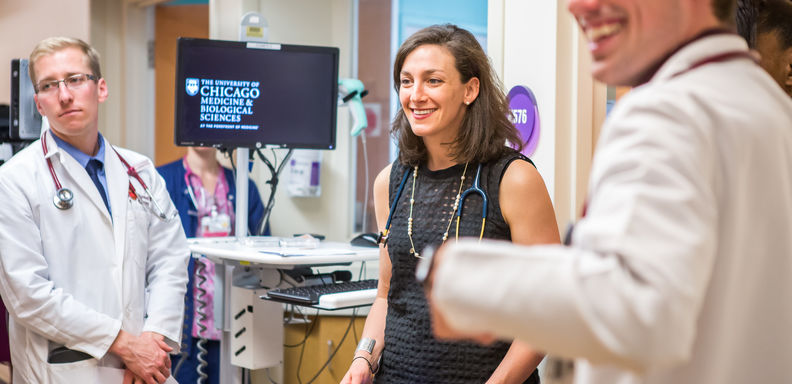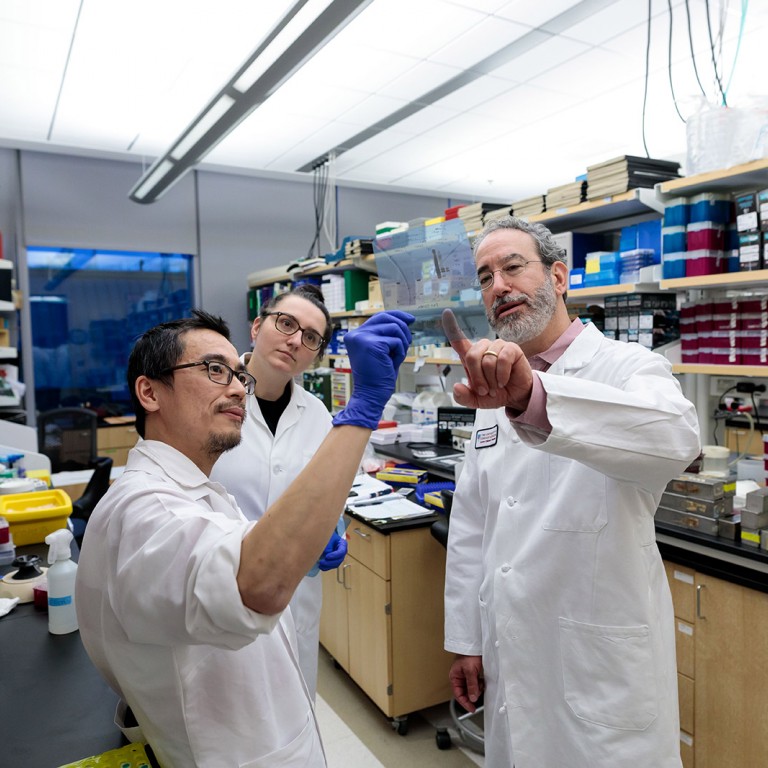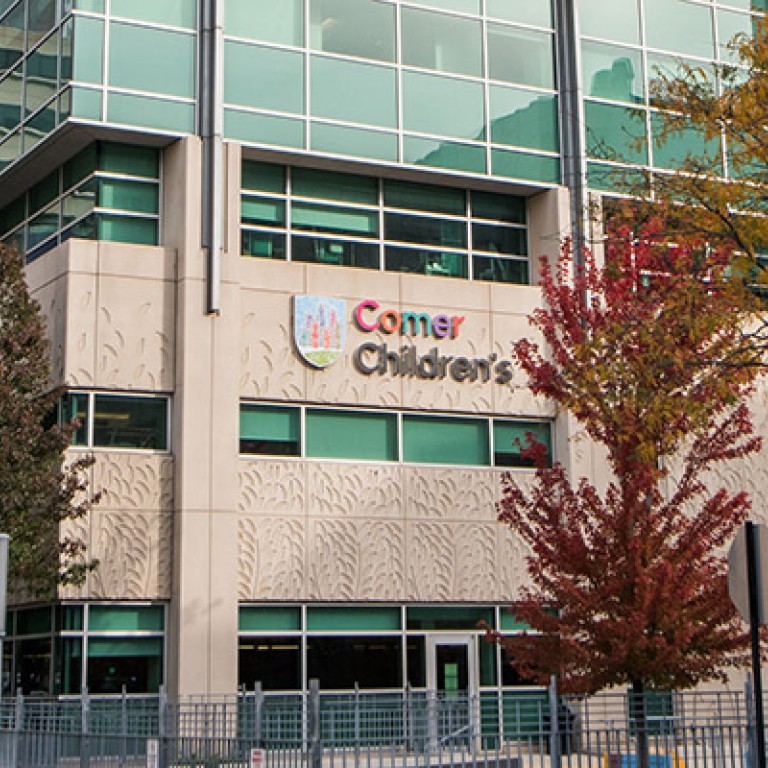- Comer has a high acuity, high volume 30 bed PICU with 1500-1700 admissions per year. There are 172 acute inpatient pediatric beds in Comer. We care for a variety of patients including those with medical and surgical critical illness, cardiac disease, neurologic and neurosurgical disease, severe multi-system trauma, respiratory failure, oncology and bone marrow transplant patients, renal and liver transplant patients, and chronic technology dependence. Fellows frequently manage renal replacement therapies, ICP monitoring and ECMO circuits.
- Comer is the only level 1 pediatric trauma center on the south side of Chicago. Fellows respond to all level 1 trauma activations and gain extensive knowledge in the care of trauma patients.
- Fellows spend 12-15 months on clinical rotations with additional nonclinical fellowship time dedicated to scholarship.
- Fellows have on call responsibilities throughout the year. Outside of one 24-hour shift per weekend, on-service fellows do not take call during their two-week service blocks to allow for continuity of care.
- Our PICU admits children via The University of Chicago AeroNetwork Transport Team from hospitals around the Chicago-land region. Fellows are granted graduated autonomy in managing transport calls and triaging admissions
- Fellows gain comfort in leading codes and respond to all emergency response systems at Comer including rapid responses and pediatric codes.
- The Comer PICU is covered by two teams composed of an attending, fellow, and residents. Rounds are joined by clinical pharmacists and a social worker with immediate availability of a case manager. PICU service weeks are completed in two-week blocks.
- Our fellows also spend 4-6 weeks per year in the pediatric cardiac ICU at Advocate Children’s Hospital in Oak Lawn where they learn to manage patients with complex cardiac disease, heart transplant candidates/recipients, and mechanical circulatory support (ECMO, VADs).
- First year fellows also rotate with Anesthesia (4 weeks) to allow for additional experience with intubation, placing peripheral IVs, and hemodynamic monitoring.
- Our award-winning Pediatric Sedation Program, which provides services for ~1700 children per year, provides fellows experience in procedural sedation.
- Second year fellows gain additional experience in management of various severities of burns in the Burn ICU.
- Electives can be customized as desired and include vascular access (including learning to place PICC lines), pharmacy, neurocritical care, palliative care, additional sedation experience, PT/OT, ECMO.
-
First year fellows who have not yet completed their pediatric boards attend a three-day pediatric board review course offered by the University of Chicago Department of Pediatrics.
- Didactics:
- Weekly fellow didactics guided by ABP PCCM content specifications
- Monthly board review sessions
- Weekly section conferences, including:
- Research conference – faculty and fellows present current / future projects and receive feedback from other section members.
- Complex case conference – section review, discussion and collaboration on management of the most complex patients currently admitted to the PICU.
- Fellow-lead multidisciplinary morbidity and mortality conference, case-based discussion, and journal club.
- Monthly fellow simulation sessions
- Multidisciplinary conferences several times per year (ECMO debriefs, joint PICU / PEM conferences)
- Weekly cardiac case-based discussion hosted by Advocate
- When at Advocate on PCICU rotation, fellows attend the weekly multidisciplinary cardiac catheterization conference
- Weekly Departmental Grand Rounds
- Fellows attend one bootcamp per year covering appropriately graduated topics with a focus on simulation learning (first year bootcamp, cardiac bootcamp and senior fellow bootcamp).
- A POCUS curriculum is offered with multiple topics and sessions available per year
- Fellows become PALS instructors and teach multiple PALS sessions per year
- Fellows both participate in simulation-based learning and lead rapid cycle deliberate practice style simulations for the residents



